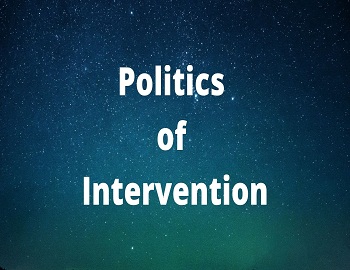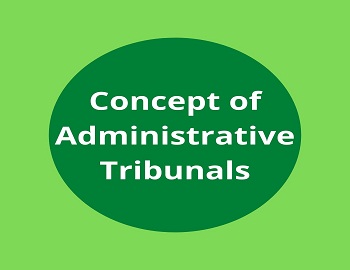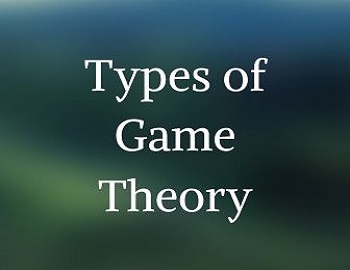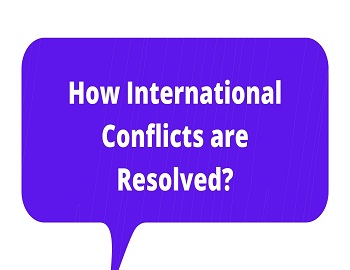Politics of Intervention:
The law relating to Intervention, as it at present exists, aims at resolving the conflict between the two principles of International Law- the right of self-defence of the intervening State, and the right of self-preservation of the State subject to the intervention. Intervention is an attack by one State upon the independence of another state in the exercise of its right of self-defence. When a State find that its neighbour State is managing its affairs in such a way as are detrimental to its existence or a menace to its peaceful existence, it has either to wage war upon its neighbour and thereby put an end to the undesirable conditions or to coerce neighbour to alter the existing state of things. The latter course which has the effect of impairing the independence of the neighbour state will amount to intervention. There is always an element of force or threat of force in such intervention. It is a hostile act that may be distinguished from mediation, intercession or other peaceful diplomatic action. According to Hall, “Intervention takes place when a State interferes in the relations of two other States without the consent of both or either of them or when it interferes in the domestic affairs of another State irrespective of the will of the latter for the purpose of either maintaining or altering the actual condition of things within it”. International Law generally forbids such dictatorial interference. A notable historical example of dictatorial intervention was the joint demarche in 1895 by Russia, France and Germany, to force Japan to return to China the territory of Liaotung which she had extorted from the Chinese by the Treaty of Shimonoseki.
Definition- Well-known writers have expressed themselves on the meaning of the term Intervention thus-
According to Oppenheim, “Intervention is dictatorial interference by a State in the affairs of another State for the purpose of maintaining or altering the actual conditions of things”.
According to Kelsen, “The Intervention, prohibitedly International Law is usually defined as dictatorial interference by a State in the affairs of another State”.
According to Alf Ross, “Intervention means the dictatorial interference of a State in the internal or external affairs of another State”.
Kinds of Intervention:
It is a dictatorial intervention that is subject to certain exceptions, forbidden by International Law. Such an intervention should be clearly distinguished from other acts of interference in the independence of a State for which the term Intervention in its popular use includes-
(1) The interference of a third State in a war between two States.
(2) The interference of foreign government between parties to a civil war.
(3) The interference of one government in the domestic or foreign affairs of another.
Prof. Winfield has referred to three kinds of Intervention, which unlike the first type mentioned, do not have the character of a diplomatic demarche, but nevertheless involve an element of force or inoperativeness.
Internal Intervention-This is intervention by a State in a civil war going on within the territory of another State. The intervening State in such a case may side with the insurgents or the legitimate government.
Examples- (i) The intervention of a number of States in the civil war in Spain in 1936 was typical of internal intervention.
(ii) Intervention on the part of Russian forces in the uprising of Hungarian people in 1956 is another instance of internal intervention.
External Intervention- It is an intervention by a State in the foreign affairs of another State. As a general rule, external intervention is directed against hostile relations of other states. While there is a war going on between two States, a third State can make an external intervention by entering the war on behalf of either of the two States.
Example- The entry of Italy in the Second World War siding with Germany against Great Britain provides an example of external intervention.
Punitive Intervention- It is resorted to by a State when it has suffered an injury by some action of another State and may be stated as an act of retaliation against the State. A pacific blockade to compel a State to observe the treaty engagements or to redress some breach of law affords an illustration of this type of intervention.
Legitimate Intervention- According to Brierly, “The strictly legal occasions of an intervention may conveniently be brought under three heads: self-defence, reprisals and the exercise of a treaty right”. The following are, broadly expressed, the principal exceptional cases in which a State has at International Law a legitimate right of intervention.
(I) Intervention for Self-Preservation and Self-Defence- State in its interests of self-preservation may find it necessary to intervene in the external or internal affairs of another State. Interventions for the purpose of self-preservation or self-defence are excused by International Law. But a State must justify that nothing was done in excess of the requirements of self-preservation.
The invasion of Korea by Japan in 1904 was justified on the ground of self-defence. The violation of the neutrality of Belgium by Germany in 1914 though in contravention of the terms of the treaty of 1839 and the rules of General International Law was sought to be justified on the ground of self-defence.
For intervention in self-defence:
(a) The danger must be imminent.
(b) Time at disposal should be very little.
(c) No other alternative should be left.
As Webster states in the case of Caroline that the necessity to justify action in self-defence should be instant, overwhelming and leaving no choice of means. In this case, the British Government justified their action on the following grounds-
(a) That there was no choice of means for the reason that the American Government had already shown itself powerless in the matter.
(b) That there was no time for deliberations for the reason that the invasion was imminent.
(c) That nothing had been done in excess of what the necessities of the occasion required.
(II) Collective Intervention-
(a) For International Peace and Security- Collective intervention under the provisions of the Charter of the UN for the purpose of restraining States from disturbing the peace of the world. When the UN intervenes, it means that all the States of the world are collectively intervening. Earlier the United Nations intervened in the dispute between North Korea and South Korea and drove the North Korean army on the border of Manchuria.
(b) On Grounds of Humanity- The nineteenth century saw a new ground- the ground of humanity to support an intervention. Several interventions on this ground took place. In 1827 Great Britain, France and Russia jointly intervened in a struggle between revolutionary Greece and Turkey which committed such atrocities as shocked the conscience of Europe. Further interventions took place in 1860 to protect the Christians of Mount Lebanon and in 1878 to secure the freedom of Balkan States.
Even after the establishment of the United Nations the promotion of respect for fundamental human rights and freedom as dictated in its Charter is one of the main objects of the United Nations. Once it is conceded that the promotion of humanitarian interest is one of the legitimate concerns of the United Nations, it ceases to be a matter essentially within the domestic jurisdiction of a State. It would thus appear that in accordance with the provisions of the Charter collective intervention on the grounds of humanity is permitted.
(III) To protect the rights and interests, and the personal safety of its citizens abroad- State in the exercise of its personal supremacy can intervene in the affairs of another State for the purpose of protecting the rights and interests and the personal safety of its citizens present or resident within the territory of another State.
(IV) Intervention in the affairs of one’s protectorate- A State which holds a protectorate has a right to intervene in all external affairs of the protected state.
(V) Intervention in a State which is guilty of gross breach of International Law- If a State in time of peace or war violates such rules of the Law of Nations as are universally recognized by customs or are laid down in law-making treaties, other States have a right to intervene and to make the delinquent obey the rules concerned. For example- if a State has itself unlawfully intervened or if a State extends its jurisdiction over the merchantmen of another State on the high seas, not only the State of the vessel, but all other States would have a right to intervene because the freedom of open sea is a universally recognized principle.









Comments (No)